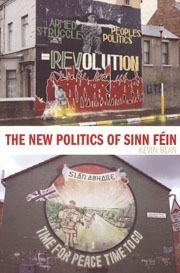Conclusion: The End of a Song?
Summary
With the thundering of cannons, the Irish ghost which, since the eighteenth century, has constantly kept the rulers of England on the trot, has been ceremoniously buried. The Irish question, a question that could endanger England's position towards the outside, has come to an end… After the great agrarian reform, the Catholic population of Ireland no longer consists of malcontent hungry people but of small farmers with peaceful conservative leanings… The Irish peasantry abandoned the banner of the fight for independence, when its economic interests were no longer in conflict with the English government. It contented itself with the fight for self-government. Tragically enough, the Sinn Féiners – being petty bourgeois – didn't understand that but lulled themselves to sleep with nationalistic dreams…
The men in suits
By the summer of 2007 many of the questions that had been central to Northern Irish politics since at least the late 1980s appeared to have been resolved. The formation of a new executive headed by formerly irreconcilable opponents Ian Paisley and Martin McGuinness marked the lifting of the last taboo and finally signified the Provisionals' acceptance as a legitimate political party. Like the Good Friday Agreement in 1998 or the IRA's commitment in 2005 to ‘purely political and democratic programmes through exclusively peaceful means’ before it, the new executive was taken as yet another powerful symbol of the apparent transformation of Northern Irish society and politics.
- Type
- Chapter
- Information
- The New Politics of Sinn Fein , pp. 249 - 264Publisher: Liverpool University PressPrint publication year: 2007



